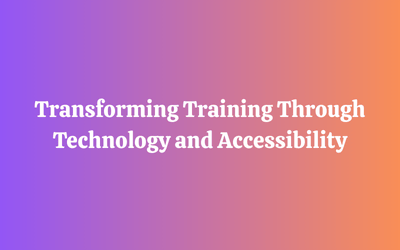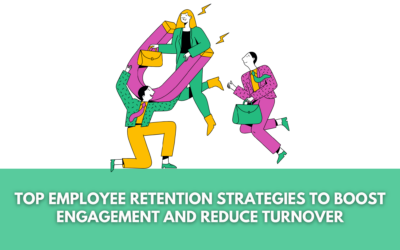How to Increase Your Learning Agility in 4 Tips
Learning Agility – Leaders need to be more adaptable than ever during times of change. Leaders need to be adaptable and nimble to deal with new business strategies, collaborate across cultures, manage virtual teams, and take on new responsibilities.
The willingness and ability to continue learning throughout your career are more crucial now than ever, as the workplace has been upended, business models are changing, and technology and industries evolve.
What do you do when you don’t know what to do?
You need a strategy for dealing with the unknown quickly if you want to be a top performer and maximize your long-term potential.
Learning Agility we all need to develop the ability to adapt and flourish in uncertain or novel circumstances, and as stated in Learning Agility: Uncover the Lessons of Experience, learning agility is the key when unsure of what to do. Knowing how to learn and knowing what to do when you don’t know what to do are both components of learning agility. It involves taking what you’ve learned from experience and applying it in fresh ways while adjusting to changing conditions and possibilities.
You can always make an effort to improve your learning capacity.
So, there are numerous approaches to increase your learning agility if you want to improve performance and long-term potential.
A Step-by-Step Guide to Building Learning Agility
Follow These 4 Tips for Improving Your Learning Agility
You can get more out of your experiences if your learning agility is improved. You’ll become more adept at navigating unfamiliar and challenging situations as you develop the habits that enable you to make decisions as you go along, which will enhance your contribution to your firm.
Follow these 4 suggestions for developing agility to excel at learning from experience and to prosper in changing times:
1. Be a Seeker.
Look for fresh, varied experiences. Experiences that stick with you affect how you manage and lead, therefore look for new and varied experiences. Engage in activities that will help you develop new abilities and perspectives. Discover new routes.
- Don’t merely follow the rules; embrace the challenge of the strange. You reduce hardship and discomfort if you respond to a new learning opportunity by sticking in your familiar surroundings, but you also miss out on the associated rebound in growth and performance. In the end, the whole impact of the new experience is gone, and you return to how you were before.
- Take on a fresh, frightful task. Find something that is meaningful, but not so crucial that failing will have serious personal implications. Most key, let people know what you’re doing and solicit their support and assistance. By taking on new tasks, you can expand your knowledge and get fresh insights that could one day be very useful to you.
- Don’t get bogged down by the first answers. We frequently take the first course of action that occurs to us without giving it much thought to see if it is the best option going forward. By experimenting with different methods, you can find new methods that could save time and effort and bring to the surface fresh knowledge that might not have otherwise been explored. Observe more than what is simple or evident. Bring in additional perspectives. Look for another angle to view the issue. Consider it from a new perspective. If you’re usually driven by data, look for stories or go obtain some practical, action-driven insight. Try to come up with fresh solutions for every issue you encounter, even if there are already ones that appear tried and true.
- Make it a practice to champion unconventional thinking; the less conventional, the better. When presented with a challenge, consider these two things: What prevents me from attempting something novel and distinctive? What alternate strategies would I employ if these restrictions weren’t present?
2. Hone Your Sense-Making.
You don’t have the luxury of time in today’s high-stakes, complicated, ambiguous, and fast-paced scenarios. You must get going and start bringing about change. This implies that you must approach understanding the new issues you confront actively. Be observant and open to trying new things. Think about “why,” “how,” and “why not.”
- Trust that you’ll have a response prepared when they’ve finished speaking and pay close attention to what others are saying.
- Take a moment if you start to feel pressured. When faced with leadership stress, take a time to examine what is required rather than immediately saying or doing what comes to mind.
- Look for an alternative approach to an issue. To extract understanding, insight, and significance from the experience, use a variety of strategies, appeal to your senses, and engage your emotions. High-potential leaders must develop the ability to make elevated sense.
3. Internalize Experiences and Lessons Learned.
Insights and lessons learned must be solidified through this process to be remembered and applied later. You risk missing crucial hints on what to do next if you don’t process the information. If necessary, rely on others for help with this. Those that are learning-agile understand that collaboration with others is crucial to their success. Building connections and relationships enables them to work across borders and have access to more people who can introduce them to novel situations and educational possibilities.
- Request feedback and be receptive to it. Locate a person you can trust to provide you with frank comments. Ask only clarifying questions to demonstrate that you are receptive to the process. Spend some time reflecting on what happened and the lessons you learned. Consider the feedback you receive as a gift from someone. There is a benefit in it even if you don’t like it or find it uncomfortable. Regardless of the reasons why the other person is providing you with critique, there is always room for self-improvement.
- Make no defense. Avoid the need to apologize or justify your behavior. Self-preservation forces you to defend what is, which keeps you from seeing what might be possible. Always attempt to thank the other person to cultivate non-defensiveness. Carefully analyze the input to spot trends (and changes) over time.
- Both by yourself and with others, reflect. When you take the time to ponder and broaden your perspective beyond just what happened to ask why things happened the way they did, you will learn. Reflection aids in bringing the intuitive to the surface and storing it for later use. Decide what you’re learning from a project, an engagement, or a new experience by taking a step back from the chaos. Discuss what is and is not functioning properly right now, or give a recap of what has already transpired. Perform post-action assessments when you and other pertinent parties consider what occurred by asking: What happened? Why did it occur in that manner? What should we do differently in the future to secure our success? What adjustments were made as a result of the event in terms of knowledge, skill level, attitudes, behavior, or values?
4. Adapt and Apply.
You have had the opportunity to grow and learn through your experiences. You become even better at applying those lessons to new and challenging situations over time.
- Develop the ability to trust your gut. Focus on the fundamentals and general guidelines. Individuals with high learning agility ratings claim to be highly intuitive and adaptable. When presented with something unfamiliar, seek out analogies to previous actions you’ve taken. To contextualize the new challenges, draw on these parallels.
- Avoid overthinking. You probably feel the impulse to complete tasks fast when under pressure. Strangely, actively seeking out solutions and ideas makes us less open to our own experience and other people’s expertise. Being receptive to this can help you come up with fresh ideas and perform better because inspiration frequently comes from the unconscious. As you explore new ground, be a flexible leader, and don’t be afraid to try new things.
According to our research, learning-agile superstars exhibit these 4 characteristics at a substantially higher level of expertise and dedication than everyone else, and they consistently produce excellent outcomes. Great leaders are supposed to be excellent learners because of this.
In the end, how well you survive in these challenging times — and prosper in the future — will depend on your capacity to learn new things and adapt to new situations.
You’ll get the most out of your experiences if you use our advice to increase your learning flexibility. You will accomplish more, learn more, and have a more fulfilling career by searching, making sense of, internalizing, and applying.
Learn More
Our News
- AI
- Animations
- Articulate
- Articulate 360
- Articulate Engage
- Articulate Live
- Articulate Presenter
- Articulate Quizmaker
- Articulate Replay
- Articulate Review
- Articulate Storyline
- Articulate Storyline 3
- Articulate Studio
- bite sized learning
- Characters
- Content Library
- Corporate Communication
- E-Learning
- e-Learning Authoring Tools
- Employee Engagement
- Game-Based Learning
- Gamification
- Gamiflexer
- Go Sales
- Healthcare
- Instructional Design
- Interactivity
- Knowledge Transfer
- L&D Trends
- Learning
- Learning & Development
- Learning Experience platform
- Learning Management System
- LMS
- LXP
- Microlearning
- mLearning
- Mobile Learning
- Nugget Learning
- Online Training
- Peek
- Performance Support
- Preso
- Quiz and Assessment Platform
- Replay 360
- Rise
- SCORM
- Screen Capture
- Software
- Storyline 360
- Studio 360
- Training Management
- Trainings
- Uncategorized




